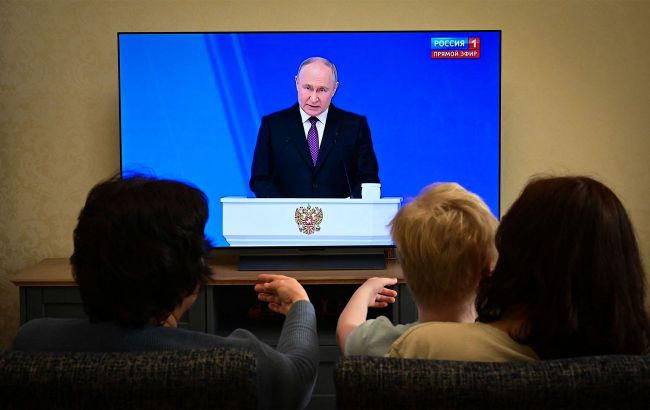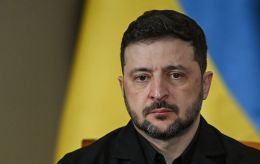Russia creates information prison in occupied territories: Details
 Photo: Ukrainians in occupied territories are being subjected to Russian propaganda (Getty Images)
Photo: Ukrainians in occupied territories are being subjected to Russian propaganda (Getty Images)
Russian authorities have cut off residents of occupied territories from TV and the internet. Only Kremlin-approved websites are working, Ukrainian resources are blocked, and Telegram and WhatsApp operate with interruptions, according to the head of the Zaporizhzhia Regional Military Administration, Ivan Fedorov.
In occupied Melitopol, the Russian authorities have restricted internet access, and residents complain about isolation.
"The internet in temporarily occupied territories, as in all of Russia, is almost nonexistent. This is not the general network we are used to using almost without restrictions. Everything has long been blocked, and a large number of sites and resources are simply unavailable," Fedorov said.
According to him, residents of the occupied territories now need to use VPNs to contact relatives and access objective information.
"The enemy deliberately restricts this so that residents of the occupied territory have access only to propaganda, not to objective information," added the head of the Zaporizhzhia Regional Military Administration.
Russia is installing Russkiy Mir satellite antennas to strengthen control over the information space and isolate territories from all news sources except pro-Russian ones.
It has also been reported that Russia is increasing pressure on residents of the occupied territories in an attempt to accelerate the passportization process.
Ukraine, however, has been able to return children from occupied areas to government-controlled territory, despite the moral pressure and propaganda imposed on them by the enemy.
For example, Ukraine recently returned two teenagers, one of whom had been taken to Russian territory, but the boy’s mother managed to bring him back despite numerous obstacles.
President Volodymyr Zelenskyy has launched the Bring Kids Back UA initiative, aimed at returning Ukrainian children to their homeland.

